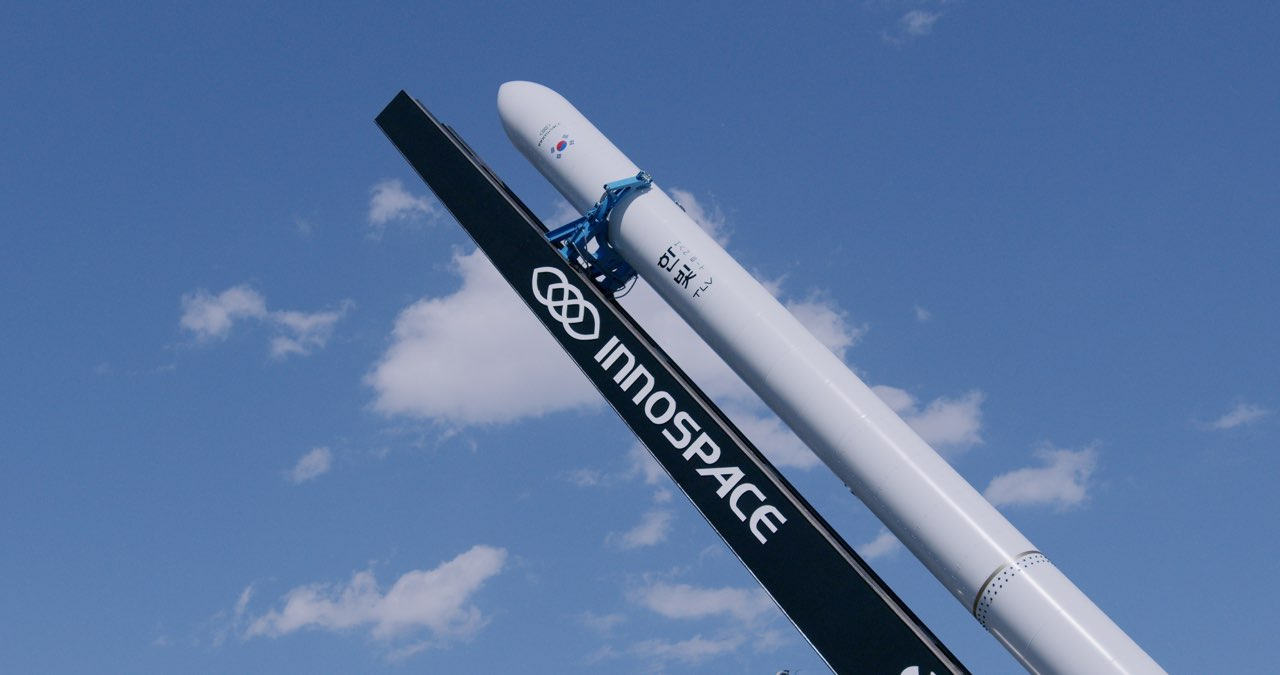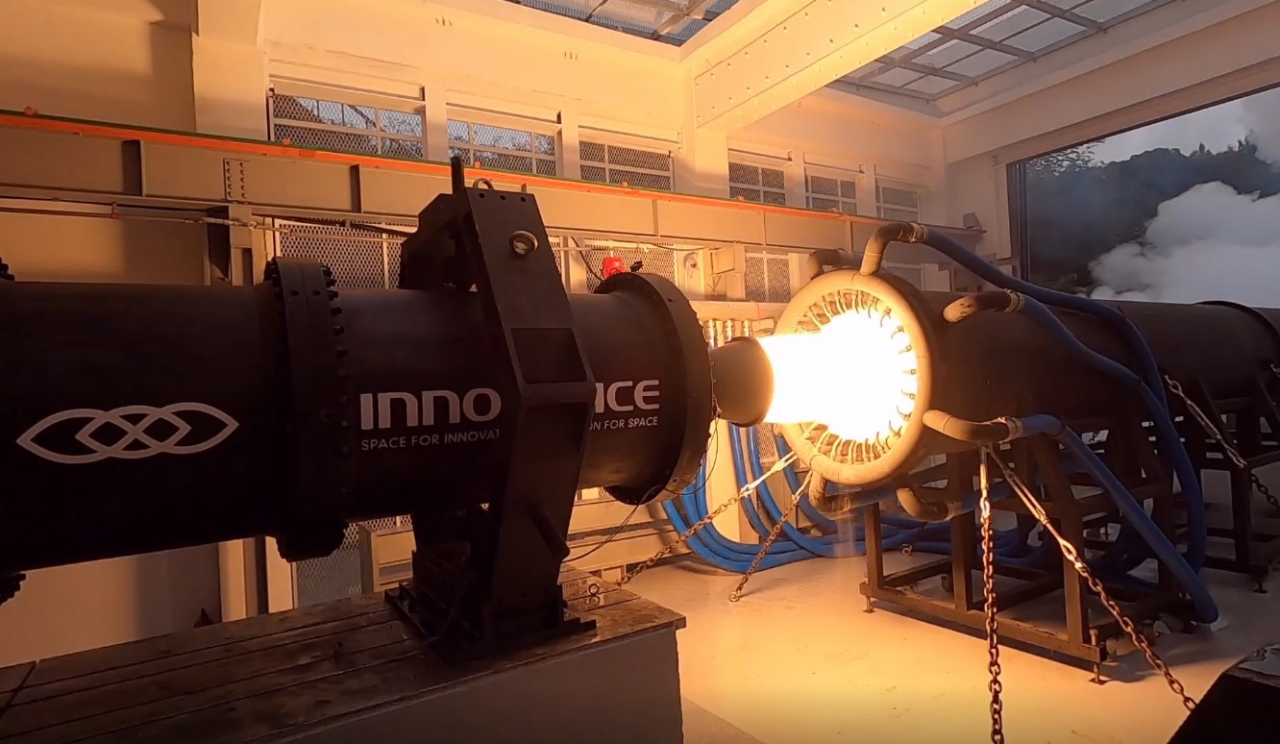[Beyond Earth] ‘In space sector, failure is natural’
South Korean startup hopes to launch world’s 1st hybrid rocket in March
By Kan Hyeong-wooPublished : Feb. 26, 2023 - 17:22

Innospace, a South Korean startup established in 2017, is gearing up to become the first in the world to successfully launch a hybrid rocket -- its Hanbit-TLV -- from the Alcantara Space Center in Brazil next month. The second trial comes about three months after the first attempt did not get the green light due to a weather issue, problems with a cooling valve and connection errors between systems.
“Although the perception has changed a lot, I think the culture that accepts failure is still lacking in our country,” said Kim Soo-jong, CEO of Innospace, in an interview with The Korea Herald at the startup’s office in Hwaseong, Gyeonggi Province, Thursday.
“But in this area, failure is really natural. With all the talent, technology and capital, the US has gone through so many failures. Even though our country will obviously have to follow a similar process, some are too afraid.”
The exact date for the launch of the Hanbit-TLV has not been confirmed, as the startup and the Brazilian Air Force in charge of the Alcantara Space Center must agree for the final consent, which is expected to be finalized sometime next week, according to Kim.
The launch is designed to test the performance of Innospace’s hybrid rocket engine. The startup’s short-term goal is to begin providing commercial services for launching small satellites in 2024.
“Our differentiating factor is to develop launch vehicles in South Korea and bring them to the customers. Most launch vehicle companies launch in their own countries. We have secured launch pads in Brazil for South America and in Norway for Europe and the Korean government is building a domestic launch pad for Asia. It’s like delivery service for private satellite makers,” said Kim.
The 46-year-old CEO, who has studied the subject of hybrid rockets since his university years, voiced confidence in Innospace’s technology. He explained that the company’s hybrid rocket technology of using solid fuel and liquid oxidizer to build an engine cuts down the time and costs necessary to develop a launch vehicle due to its simple structure and fewer required parts.
“The bigger advantage is (the technology’s) safety that prevents the rocket engine from being exploded in case of contingency. For satellite launch services, it eventually comes down to the battle of price. Because our hybrid rocket does not explode, we can lower the cost of safety management,” he said.

According to Kim, the downside of the hybrid rocket engine is that it requires a massive amount of test data over a long period of time as it is difficult to predict the technology’s combustion mechanism. Noting that companies across the world are trying to play catch-up to develop their own hybrid rocket engines, he underscored that Innospace is way ahead in the game.
“We were able to develop our technology because we have the database from tens of thousands of tests that I have continuously conducted for about 20 years since my time in a lab at graduate school. Back then, there was less interest in rocket engines and this hybrid rocket was a completely new engine so it received almost no attention,” he said.
According to a market report by Euroconsult, the number of small satellites that have been launched and are scheduled to be launched between 2022 and 2031 is estimated at 18,460, indicating that the market for space launch service providers can be as much as $28.4 billion.
The CEO said the atmosphere surrounding the space industry has changed dramatically compared to when he first started the company just six years ago.
Kim was invited to a meeting at the presidential office with space pioneers two days before the interview. President Yoon Suk Yeol invited 40 students, business representatives and researchers to discuss the government’s commitment to them and the role of each sector in developing the space economy.
“If the government keeps sending out the message of focusing on fostering the space sector, investors react and take action accordingly. So the situation for getting investment has gotten better. But compared to foreign cases, the level of understanding space technology is still low and the focus is still on risks,” he said.
Innospace has raised 55 billion won ($42 million) in investment funding. The company had 91 employees as of January. The rocket developer plans to go public on Korea’s secondary tech-heavy Kosdaq in 2024 through the technology special listing track.
Regarding the name of the company, Kim introduced the company’s catchphrase: "innovation for space and space for innovation." Saying that space is a place for various and innovative business models, he added that Innospace is a space mobility company for the time being, but it could be developing other space technology such as satellites in the future.




















![[Today’s K-pop] Treasure to publish magazine for debut anniversary](http://res.heraldm.com/phpwas/restmb_idxmake.php?idx=642&simg=/content/image/2024/07/26/20240726050551_0.jpg&u=)